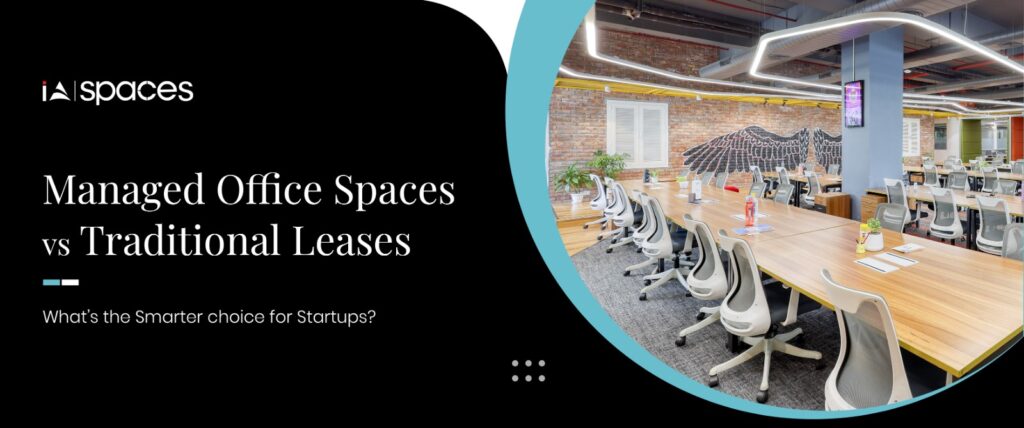
When a budding founder launches a new idea, one of the biggest concerns is finding the right workspace. The question is, should they commit to traditional leases or opt for managed office spaces and coworking options that offer more flexibility for startups?
Nowadays, the way companies think has gone through a major seismic shift. Earlier, businesses traditionally owned offices by renting long-term leases. Still, things are changing gradually towards modern choices, such as renting managed office spaces, to make the work environment more flexible and adaptable.
What are traditional leases?
A traditional lease can easily be understood as a model of renting any space, usually for a long-term contract, and you are responsible for setting up your entire office space, from furniture and utilities to seamless data connection and maintenance. Now, this type of model is usually suitable for those who are already an established business or brand, but if you are a budding business, then managing all these concerns while stuck in a long-term lease contract can be very exhausting and difficult.
Every approach has two sides, and traditional lease models do have some upsides and downsides as well:
Upsides
- If your business is established, then you don’t have to worry about long-term lease contracts.
- You can have full control over your space to plan the aesthetics for your space according to your business.
Downsides
- If you’re a budding business owner, then managing a long-term lease can be very difficult, as it often comes with many hidden costs.
- You might need to give higher initial costs, like security deposits, etc.
Hence, the traditional lease model is good if you have established your business, because if you’re planning to scale your business or navigating hybrid schedules, then choosing managed office spaces or coworking for startups is not a luxury; it is a necessity.
What Are Managed Office Spaces, and Why Do They Work for Startups?
Managed spaces can easily be understood as spaces that you rent out for working, and all the management and utility-related concerns will be coordinated by the third-party operator. These spaces are fully furnished, ready to move in with all the facilities, and designed to reduce the operational burden from the shoulders of the founder.
For startups and businesses, it is the perfect space; you just need to rent out the space according to your duration, and the rest is managed by the third-party providers. From housekeeping to maintenance, all are managed by the third-party provider.
Now, managed office spaces also have some upsides and downsides:
Upsides
- When compared to the traditional lease model, managed office spaces come with the option of flexibility, i.e., if your business is scaling up, you can switch to a bigger space.
- Managed spaces provide you with a friendly yet professional environment with all the aesthetics managed by them.
Downsides
- Now, if you have taken space without researching properly, then you can end up renting any space that does not permit changing the space aesthetics, according to your business.
- Your monthly fees might add up if you have not managed the budget accordingly.
Why Coworking for Startups Is a Smart Alternative
For startups, cost-efficiency and flexibility are a must since they are already new in the market and need space and time to be stable. Coworking for startups and managed office spaces are the two broad categories that can efficiently work with their business model, as both spaces can be rented out according to business requirements.
Spaces like managed office spaces give a perfect balance of professionalism, convenience, and the option of scalability, which makes it very easy for the founders to make a smart choice.
Why Managed Office Spaces and Coworking for Startups Are a Better Choice
- You get an ecosystem of collaboration and mentorships, which will help you scale your business idea.
- These spaces are designed according to the needs of the employees, and they have specific zones like coffee stations and breakout zones to keep productivity and morale high.
For more mature and larger companies that have more predictable needs, the conventional leases might still be suitable, but for most startups, managed office spaces serve as the ideal starting point, as they can scale without the burden of being tethered to an office.
Closing Thoughts
Choosing a workspace is not just about picking an office; it’s about picking an environment that boosts your growth, especially for startups. More than owning the four walls, it is about complementing the growth journey. Managed office spaces give you the perfect environment and ecosystem of opportunities to grow.
